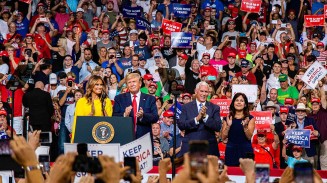The Scottish scientists-creators of genetically-engineered Dolly the sheep has lost its legal fight to get patent protection for the cloned animal in the US. Bloomberg said that a court ruled that their creations are genetic copies of naturally occurring beings.
The US Court of Appeals for the Federal Circuit in Washington disagreed today Edinburgh-based Roslin Institute's argument that Dolly and any other live animal clones were eligible to be patent-protected as they are products of human ingenuity. The news agency clarified that the process in creating Dolly, which was covered by at least one other patent, was not the issue in the case. The court's ruling, which was published as an opinion on its website, had agreed on the basis on why the US Patent and Trademark Office has rejected the institute's application for cloned animals. Circuit Judge Timothy Dyk also wrote that the genetic identity of the cloned sheep to her donor parent had rendered her unpatentable.
ZHead of the division of medical ethics Arthur Kaplan at NYU Langone Medical School said about the court decision, "This is a very important and fascinating opinion. They've just ruled one of the most novel, innovative ways to create new living things is nothing more than copying."
Bloomberg explained that to produce the clones, scientists had to grow copies of cells from the original animal in a petri dish, and then extract genetic material from it. The DNA from the original animal is then inserted into a nucleaus-absent egg, which would result in an embryo that is subsequently implanted in an animal that would act as its surrogate mother.
According to the court, the argument that the cloned animal was different because of of the possibility that it has mitochondrial DNA from the host egg was not solid basis to secure an approval. Moreover, the court also rejected Roslin's argument that the cloned animal could have a different look or may have acted differently from the source animal via environmental factors.
Dyk added in his written ruling, "(There's nothing) that suggests that the clones are distinct in any relevant way from the donor animals of which they are copies. The clones are defined in terms of the identity of their nuclear DNA to that of the donor mammals."
© 2023 Lawyer Herald All rights reserved. Do not reproduce without permission.
Get the Most Popular Lawyerherald Stories in a Weekly Newsletter





